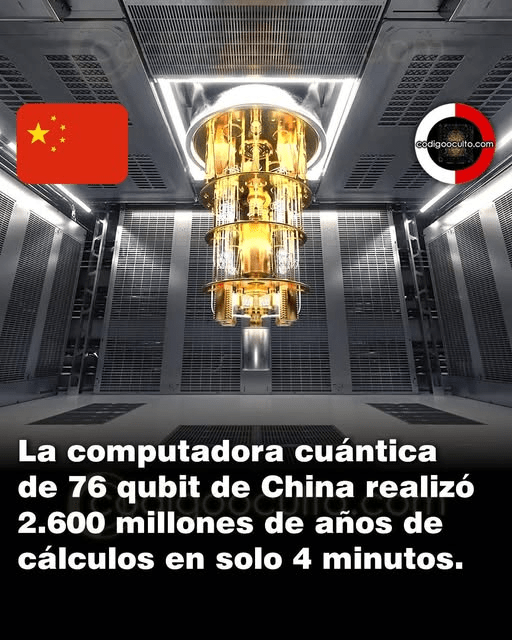💻⚡In just 4 minutes, China's 76-qubit quantum computer solved a problem that would have taken a traditional supercomputer billions of years.
This computer, called "Jiuzhang," uses lasers, mirrors, prisms, and photon detectors, and operates using a method called Gaussian boson sampling, which allows for counting light particles with great precision.
Traditional supercomputers can handle up to 5 photons, while Jiuzhang has worked with 76 photons, marking a significant breakthrough.
Quantum computers process information differently, leveraging superposition and entanglement, which allows them to achieve speeds that classical computers cannot.
This is not only an impressive demonstration but also has practical applications in areas such as quantum chemistry, complex mathematical problems, and the development of a quantum internet. $XRP
📂
Source:
- Scientific journal: "Science."
- Scientific study: "Quantum computational advantage using photons."
- DOI: 10.1126/science.abe8770


